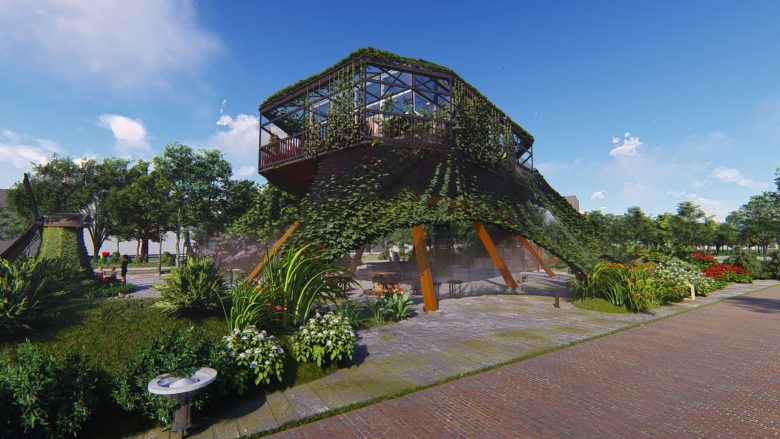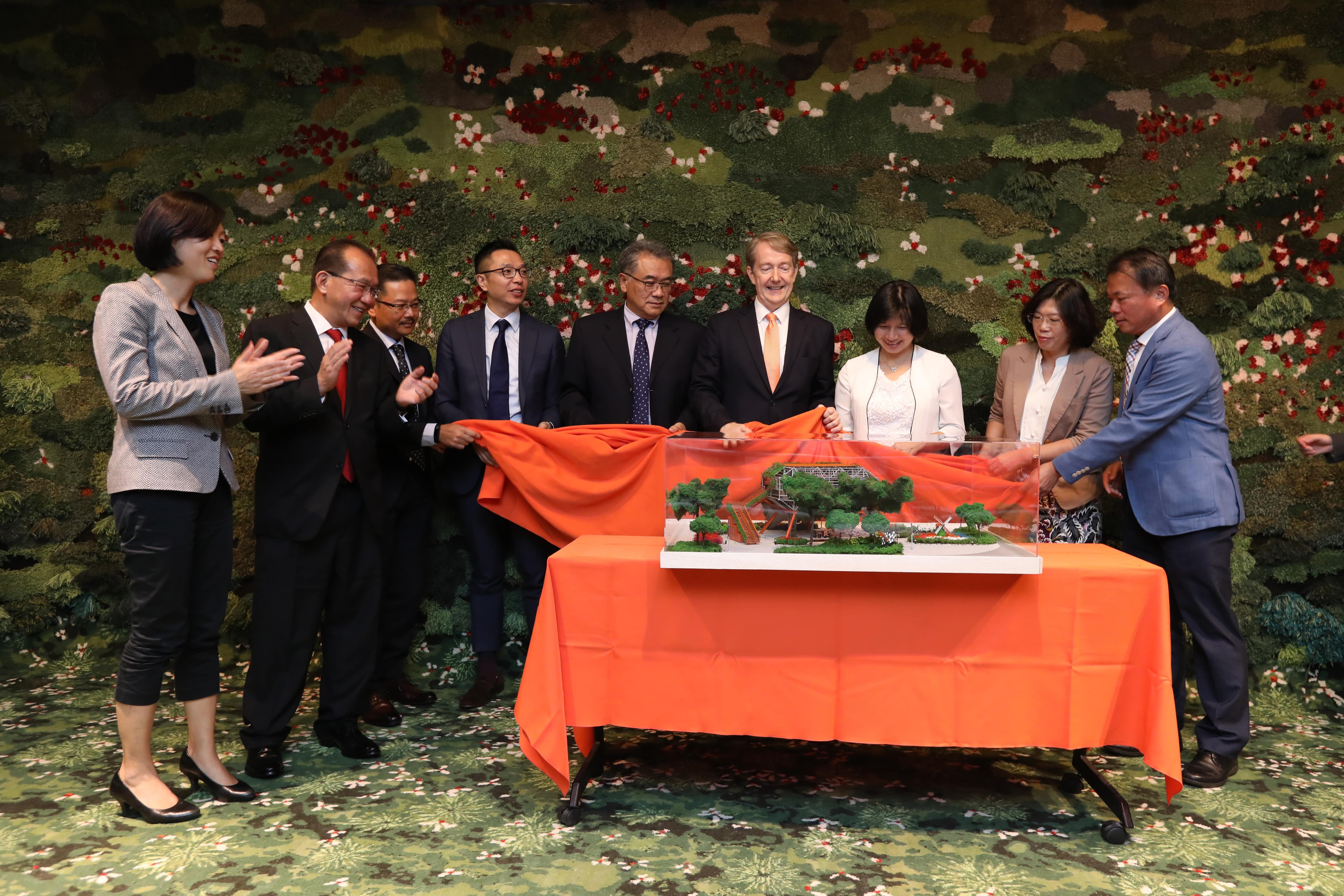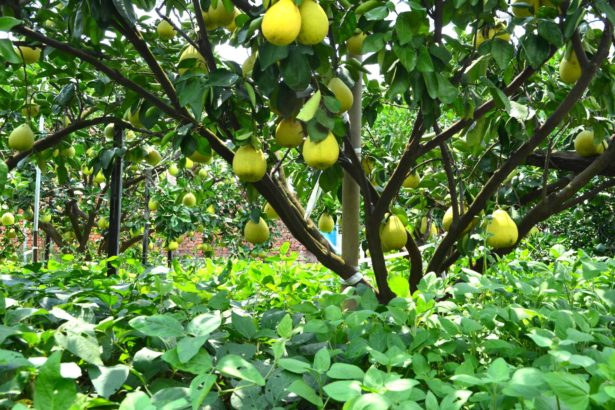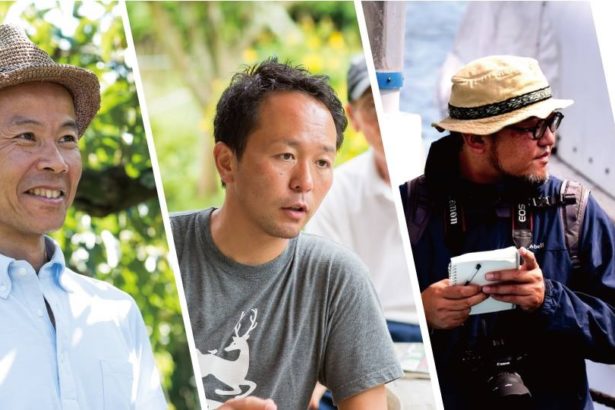The birth of Taiwan's first recycling building, Taiwan and the Netherlands join hands with the world's first example of integrated building materials recycling.
Share + 1 Tweet Email
The participation of the Netherlands, a big flower country, in Taichung Flower Expo is not only to show the strength of agriculture, but also to lay the foundation for the future of Taiwan's cycle. On behalf of the Dutch government, the Dutch Trade and Investment Office (NTIO), combined with the four leading Dutch enterprises and Taiwan Sugar Company, and in cooperation with the Netherlands, Taiwan, government and academic circles, built the first recycling building in Taiwan at the International Court Park of the Forest Park after the Taichung Flower Expo. It will also be the first recycling building to be demolished in the world, hoping to implement the concept of "recycling of building materials".


Lai Ying, Director of the waste Management Office of the EPD, said that the "circular economy" is one of the national 52nd industrial innovation programmes, and the EPD has been promoting it for many years. In June this (2018) year, the EPD made reference to the spirit of the Netherlands' Green Agreement Green Deal' to promote the signing of a "Green Agreement" between operators and the alliance, in the hope of creating a win-win situation for the economy and environmental protection through public-private partnerships. The Environmental Protection Agency and the Circular Taiwan Foundation, the Taiwan Sustainable Energy Research Foundation, and the Taichung Institute of Architects in Taichung City have been invited to become strategic advisers to the Taichung Huabo Holland Pavilion. In this regard, Lai Yingying is pleased to see the cooperation of the Taichung Huabo Holland Pavilion. I believe that both the public and private sectors involved can leave valuable experience and contribute to the development of circular architecture in Taiwan.
Thermal insulation paint effective cooling powder paint zero waste
At the same time, the four leading Dutch enterprises and Taiwan Sugar are also at the Dutch National Pavilion to showcase the new technologies and models of circular economy. Akzo Nobel (AkzoNobel), the world's largest paint company, has won the first place in the Dow Jones Sustainability Index (Dow Jones Sustainability Index) five times in the past six years, and four technology products are used in the Dutch pavilion.
He Qiting, general manager of Taiwan's Akzo Nobel Coatings Co., Ltd., said that the roof of the Dutch Pavilion uses "double leakage", which comes from Dulux Deli paint, a well-known brand under AkzoNobel, which not only is waterproof, but also insulates through high reflection technology, which can cool the roof by 10 degrees, cool the room by 5 degrees, and reduce the use of air conditioning electricity. In addition, the orange beams and columns of the Dutch Pavilion are made of Interpon powder paint. In addition to protecting building materials and prolonging the life of repeated use, the paint will not produce any waste water or waste gas from production to construction spraying, and the unused powder paint will also be recycled through the recycling system to achieve a utilization rate of at least 98% and greatly reduce waste.
The world's only recyclable carpet debuts in Taiwan for the first time.
Dutch materials company DSM, which has been listed as "changing the World" by Fortune for three consecutive years, has also been rated by Sustainalytics as the chemical industry company with the best environmental, social and management performance for the past two years. This time DSM offered the Dutch Pavilion the world's first recyclable carpet "Niaga", which was unveiled for the first time in Taiwan. Shao Zhongyi, general manager of DSM Taiwan, said that over the past years, DSM has been using the highest technology to improve the life of mankind today and in the future, while the theme of "circular economy" at the Flower Holland Pavilion in Taichung is exactly in line with DSM's "3p policy": Planet (Earth), People (Human), and Profit (profit).
Shao Zhongyi points out that carpets are mixed and bonded with a variety of materials, and are not easy to recycl. as a result, more than 95% of the world's carpets are buried and burned by roads, which has a great impact on the environment. DSM redesigned products and processes to simplify carpet materials and separate adhesives; carpets can be recycled and remanufactured into carpet materials and then made into carpets. And "Niaga" turned over, it is "again" (English "again"), symbolizing the recycling, re-use of the circular economy.
Sell out without lights for a hundred years the new business of Dutch enterprises
Dutch company Signify, which provides Philips lighting products for 127 years, rents the lighting system for free, reflecting the circular business model of "rent instead of buy" and "sell out without selling lights".
Yu Yongtao, general manager and global vice president of Taiwan Xin Nuofei Co., Ltd., said that Xin Nuofei's circular lighting integrates three businesses, including modular product design, repair instead of discarding, and then an intelligent networking system that allows people to better interact with lights through sensors. Finally, rent instead of sales, companies do not need to consider long-term fixed asset investment, complex technology systems, only need to buy lighting services from Xin Nuofei, light assets can enjoy the top lighting.
In addition, Yu Yongtao specifically mentioned that in addition to installing solar panel street lights outside the Taichung Flower Bo Holland Pavilion, Xin Nuofei has also deployed the Interact City Philips intelligent road lighting system in the Taichung Precision Park, so that both the government and the public can easily enjoy the benefits of connected lighting, which can not only facilitate energy saving, but also be managed effectively.
Dutch banks are duty-bound to promote the economic model
ING Anzhi Bank of the Netherlands was selected as the best bank in the world by Global Finance (Global Finance) last year (2017), which also joined the Bo Holland Pavilion in Taichung. Yang Shijing, executive deputy general manager of the bank's Taipei branch, points out: "any new economic model can never be carried forward without banking and financial support and capital injection." therefore, the ING Group is "duty-bound" to promote the importance of circular economy through the Holland Pavilion of Huabo in Taichung.
Yang Shijing said that since 1996, ING Bank has been engaged in the study of sustainable operation and circular economy, actively cooperating with international institutions. This year (2018), it even combined with two other Dutch banks to launch the world's first guidelines for circular economy financing at the United Nations high-level political forum, hoping to awaken the banking and financial industry to attach importance to circular economy. Participating in the Flower Bo Holland Pavilion in Taichung, he hopes not only to demonstrate ING Bank's determination to promote circular economy, but also to become the best partner for the Taiwan government and enterprises to move towards circular economy through professional assistance.
Taiwan Sugar attracts jade to lead the cycle of Taiwan
Taiwan Sugar Co., Ltd., which has a history of more than 70 years, has promoted circular economy in Taiwan for many years, and has also participated in the construction of the Taichung Flower Bo Holland Pavilion. Huang Yuzheng, chairman of the Taiwan Sugar and Recycling Taiwan Foundation, said that the wood for the interior floors, doors and furniture of the Dutch Pavilion came from the two Yong Sugar warehouses built in 1949 and Kaohsiung. The wood used to be the truss of the roof, but then the truss was sunken and not easy to repair and was disassembled and preserved. This time it was reused, and it is hoped that the wooden tenon structure will not be damaged as much as possible. It is hoped that it will continue to be a building material in the future.
Huang Yuzheng pointed out that it is hoped that this cooperation will make Taiwan Sugar's many resources, from timber to idle space, become an important platform for promoting circular economy and create a forward-looking circular Taiwan. After the Flower Expo, the Dutch Pavilion will be reproduced in Taiwan Sugar's transformational Yuemei Sugar Factory, hoping to be unique in Yuemei's "Taiwan Recycling Design Park" and become a model of circular architecture.
Experts in the implementation of circular architecture will propose suggestions.
The Taiwan Construction Research Institute will use the Building Information Model (Building Information Modeling) to build a building materials passport for the Taichung Huabo Holland Pavilion to record and disclose all building materials information, which will be convenient for re-use in the future, making the building a building materials bank for temporary storage of building materials. In addition, they will also record the challenges and opportunities encountered in the implementation of circular buildings in Taiwan, and plan to publish a "White Paper on the implementation of Circular Construction: take the Dutch National Pavilion as an example."
Professor Lu Liangzheng, director of the Taiwan Construction Research Institute, said that at the beginning of this year, 16 Dutch industry, government, and school representatives submitted the transformation agenda of the Dutch construction industry, planning in detail the timing and proposed changes for the Netherlands to move towards recycled buildings. When the Taichung Huabo Holland Pavilion is demolished next year, it will be the first circular building in the world to be demolished, which is worth recording as a reference.
At present, Lu Liangzheng has put forward three observations, which are worth thinking about in promoting circular architecture in Taiwan. First of all, Taiwan is designing circular buildings, considering earthquakes and typhoons, thinking about what can be done to ensure safety, and at the same time solving the problems of insufficient natural resources and waste disposal. Secondly, the Taiwan government subsidizes the refurbishment of dangerous and old buildings, which should also be taken into account in circular design in order to expand the relevant market demand. Third, Taiwan's current procurement system does not include cases of purchasing and renting old building materials, and a quantitative cycle of indicators should be established to calculate the annual benefits of circular economy.
Share + 1 Tweet Email
- Prev

Analysis on the present situation of production and Marketing structure of Agricultural products in China and suggestions for improving problems (part two)
Analysis on the present situation of production and Marketing structure of Agricultural products in China and suggestions for improving problems (part two)
- Next

Local creation, according to Japanese proponents! Face-to-face communication with Japanese advocates to find the value of Taiwan's rural areas
Local creation, according to Japanese proponents! Face-to-face communication with Japanese advocates to find the value of Taiwan's rural areas
Related
- A course of planting techniques and methods on how to grow carrots
- How to plant the latest tulips?
- Is it better to pick tea in the morning or in the afternoon? When is the best time for tea to be picked? what is the third or fifth tea?
- Launch Yuanxiao Happy combination Haocha + Tea Yuan healthy Taste
- Penghu Tourism "Fireworks 20 Parade with You"
- 2022 West Lake Happiness holds "Digital Revitalization Voucher" and draws iphone13 and laptop.
- Banqiao Fuzhou social houses are designed to change start-up combined with police elimination to create a safe and livable environment
- The convenient measure of "mechanical weeding" in Xinbei has been abused and the Agriculture Bureau has imposed heavy penalties on the illegal land consolidation.
- Changgeng University Joins Hands with Four Memory Factories to Rescue Memory Talent Shortage
- The list of Taiwan's top 100 MVP managers is listed by the Director-General of the Farmers' Association of Sanxia District.

